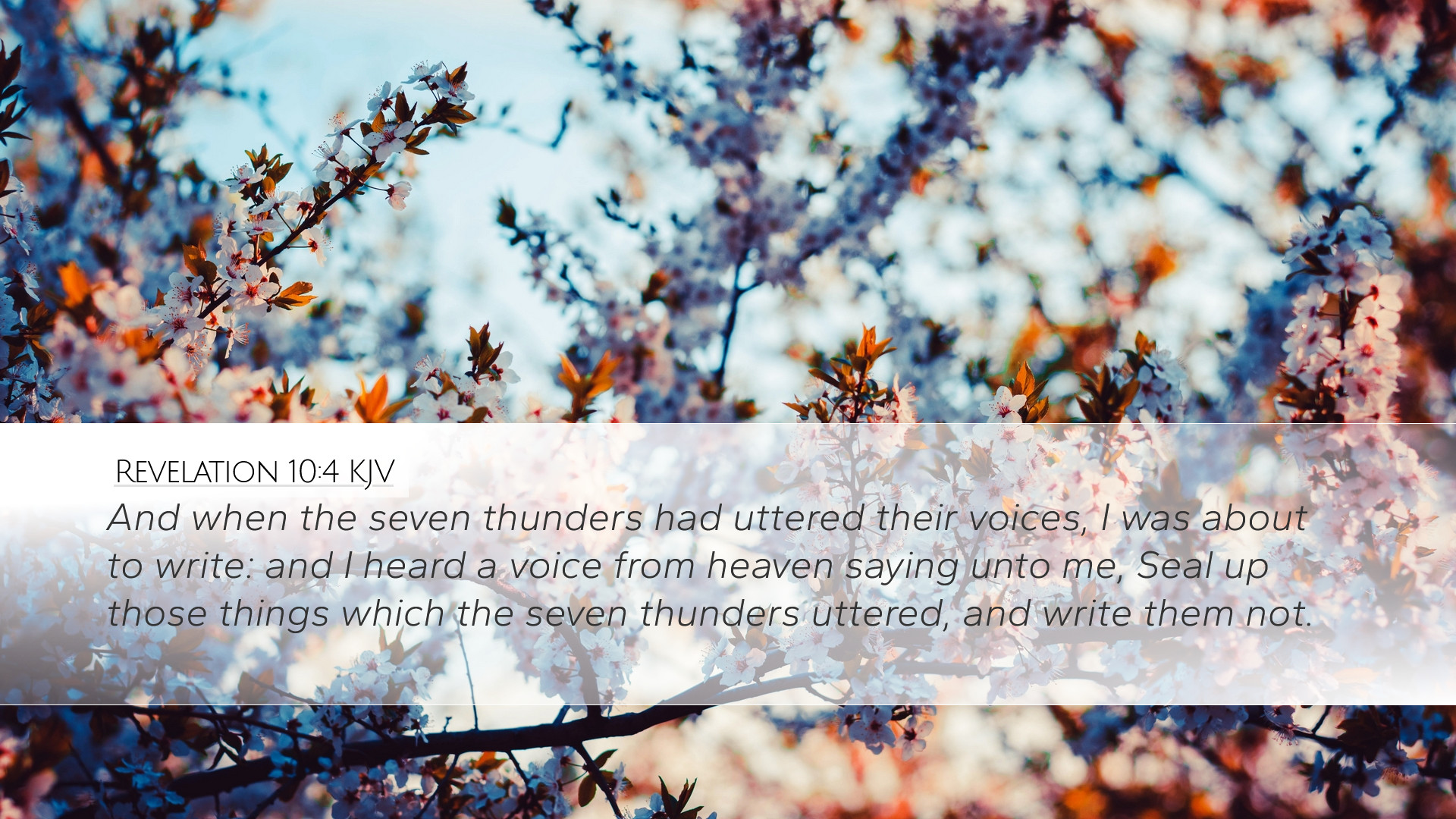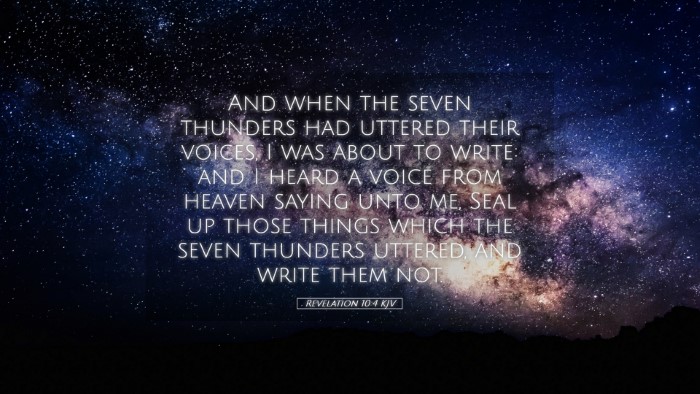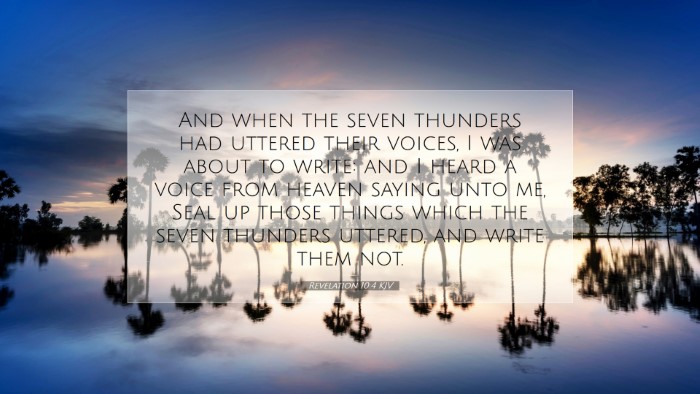Commentary on Revelation 10:4
The verse in question, Revelation 10:4, states, "And when the seven thunders had uttered their voices, I was about to write: and I heard a voice from heaven saying unto me, Seal up those things which the seven thunders uttered, and write them not." This intriguing passage has been the subject of much interpretation and scholarly analysis throughout the centuries. Below, we consolidate insights from several public domain commentators that emphasize its theological and eschatological significance.
Understanding the Context
This verse emerges from a segment in the Book of Revelation where John, the author, is experiencing a series of visions concerning the end times. The overall context in which this verse resides involves the unfolding of God’s judgment and the proclamation of His eternal kingdom. The symbolism prevalent in this chapter has prompted a variety of interpretations across traditions.
Matthew Henry's Insight
Henry notes that the episode of the seven thunders serves as a divine communication indicating significant events. He emphasizes that the command to "seal up those things" suggests the revelation of truth that is intentionally withheld from humanity. This indicates both the mystery of God’s plans and the limitations of human understanding concerning the divine will.
- Divine Secrecy: Henry asserts that not everything concerning God’s purposes can be disclosed. This points towards an infinite wisdom in the divine plan that surpasses human comprehension.
- Symbolism of Thunders: The thunders symbolize powerful declarations from God that might signify judgment or significant announcements about the future.
Albert Barnes' Commentary
Barnes offers a view that emphasizes the mystery surrounding divine revelation. He explains that the seven thunders' utterance represents knowledge that is beyond what has been revealed in Scripture. This draws attention to the idea that there are aspects of God's providential plan that remain a mystery to the world until His appointed time.
- Incomprehensibility of God: Barnes highlights that while God has provided sufficient revelation through the Scriptures, there remain aspects of His will that are not to be disclosed until His sovereign decision.
- Importance of Obedience: The instruction to seal these revelations speaks to a pattern of obedience that believers should model, respecting God’s authority about what is revealed and what remains secret.
Adam Clarke's Analysis
Clarke provides an in-depth exploration of the implications associated with the ‘seven thunders’. He regards the thunders as manifestations of God’s voice that may echo the ancient prophecies and the power of divine judgment. Furthermore, he suggests that the command to seal signifies a touching on the limitations of human agency in the understanding of God’s timing and judgment.
- Theological Implications: Clarke points out the profound theological implications of this sealing. It emphasizes that believers are called to trust in God’s sovereignty, even in the face of unanswered questions regarding the future.
- Intercession and Prophecy: The notion that certain revelations are not to be revealed suggests a role for prophetic voices in intercessory prayer, where understanding is sought not merely for knowledge but for divine providence.
Theological Reflections
This verse invites a deeper reflection on God's communication with humanity and the parameters placed around divine revelation. It compels believers to grapple with their understanding of prophecy, divine will, and the acknowledgment that some mysteries belong solely to God.
Application for Modern Believers
Understanding Revelation 10:4 enriches the theological foundation for pastors and scholars alike:
- Encouragement in Mystery: The acceptance that some things are sealed calls for a humble posture before God’s sovereignty. It reminds believers that faith often involves trusting what is not fully understood.
- Call to Worship: The thundering voices can be seen as a call to worship, reflecting the grandeur and majesty of God’s voice and presence. It serves as a reminder of the need for reverence in our approach to divine matters.
Conclusion
In summary, Revelation 10:4 is a pivotal verse that illustrates the balance between divine revelation and the mystery of God’s plans. The collective insights from Matthew Henry, Albert Barnes, and Adam Clarke illuminate this passage's complexity and provide a foundation for personal reflection and teaching. This verse calls the church to a posture of reverence and trust in God's incomprehensible yet perfect plans as they await the fulfillment of His promises.


